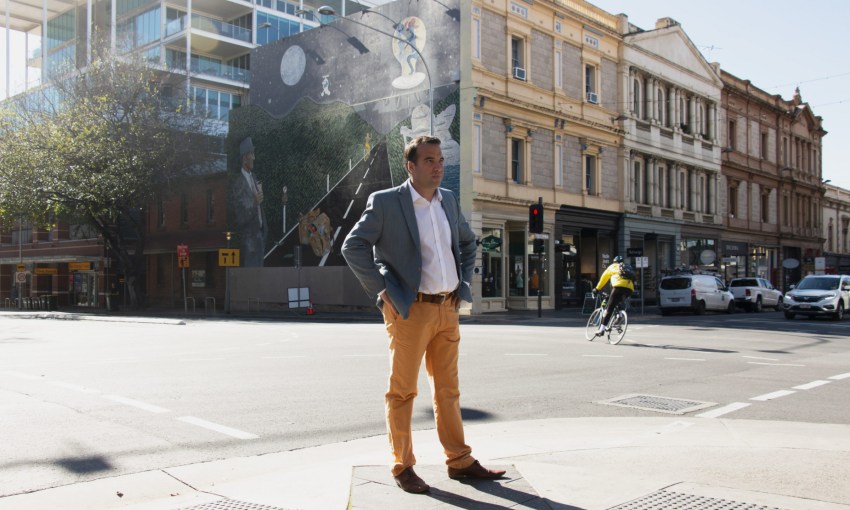Inspired by his council's recent climate emergency declaration, Burnside councillor Julian Carbone proposed another motion banning the sale of fur and exotic animal skins on council land. It didn't go well.
Can local government tackle big issues?
When Burnside councillor Julian Carbone was recently interviewed by a radio journalist, about a motion he would propose to council later that night to effectively prohibit the sale of furs and exotic animal skins at council-organised events, the interviewer sniggered.
Julian met a similar attitude once again when introducing the motion formally to council that night.
“It was always going to be a tough battle,” Julian tells CityMag, a day after the motion was defeated 10 to two.
“All governments have a role to play with these sorts of issues, and just simply saying it’s a federal issue, I argued, was buck-passing and a cop out.
“There was also the frustrating argument [from the councillors], around, ‘Well, hang on, what about Akubra hats? They’re made from rabbits,’ and so forth.
“Even though the motion was about the sale, not the wearing, not the displaying, but the sale of these products, people got sort of caught up.”
The Akubra is an iconic Australian product – as exhibited by fictional hopeless adventurer Russell Coight and political master of the media bite, Bob Katter – and it served as a conveniently patriotic distraction from the true intent of Julian’s motion.
The specifics of Julian’s motion would have led to a ban on the sale of “unethical products”, Julian says, at any stalls or markets on council land, including parks and reserves.
Leather, simply by virtue of being an animal product, doesn’t necessarily come under the banner of an unethical product.
The motion would have had no bearing on privately-owned shops, nor would it have sought to empty the closets of locals within the Burnside council’s jurisdiction of hand-me-down mink coats.
For Julian, this was simply an act of using his position within the council as a platform, and giving the council itself on opportunity to speak on behalf of its community on social issues – like animal rights.
This is not unheard of.
“I thought, well, hang on: if other councils in New South Wales are taking action on a global social issue, then imagine the impact it would have if all councils did it,” Julian says.
“We can all have a say. We can all do something that has an impact.”
The Burnside council itself has a recent history of taking a stand on social issues.
Last September, the City of Burnside declared a “climate emergency exists” – a statement which currently sits on its website.
The council resolved to “[advocate] for action and collaboration across all tiers of government, while recognising that climate change needs to be considered holistically in the decisions and operations of Council.”
As part of the announcement, Burnside Mayor Anne Monceaux said the council could “always do more” in terms of the climate emergency, and that council members would aim to implement measures that would “assist minimising harm to our environment.”
It’s not such a stretch to think this could mean also giving more consideration to Australia’s fauna.




